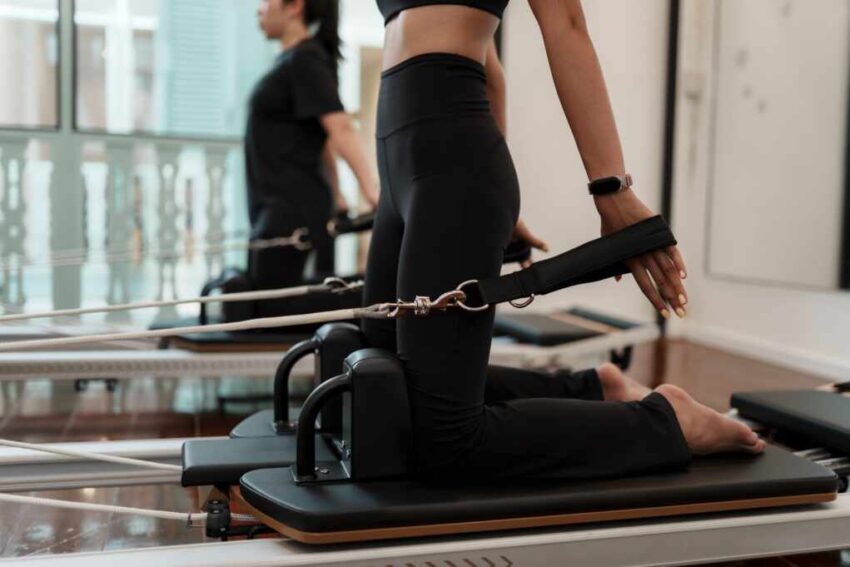An Australian pilates instructor’s viral fury over a common class disruption exposes just how far today’s culture of entitlement and lax standards has crept—even into the world of fitness.
At a Glance
- Pilates instructor ignites debate by publicly condemning disruptive class habits.
- Incident highlights broader frustrations over declining standards and accountability in fitness culture.
- Recent legal changes in Australia put new pressure on studios to treat instructors fairly—but raise costs and compliance headaches.
- Industry sees a surge in public rants and social media callouts, echoing wider societal battles over professionalism and common sense.
Pilates Instructor’s Public Rant Captures Frustration with Declining Standards
A pilates instructor in Australia recently took to social media to blast a “widespread exercise habit” that she claims is ruining her classes. The specific behavior wasn’t detailed, but the uproar around her comments quickly snowballed, reflecting a deeper frustration among professionals—and clients—about the erosion of discipline, respect, and personal accountability in modern group fitness sessions. Much like the broader culture wars infecting everything from schools to sports, the world of pilates is not immune to the creeping influence of entitlement and disregard for basic etiquette.
The instructor’s outcry lands at a moment when the Australian fitness industry is under the microscope for how it treats its workforce. Recent legal drama—including a tribunal ruling denying workers’ comp to a pilates instructor injured walking between classes—highlights just how fuzzy the boundaries of responsibility and professionalism have become. At the same time, a Gen Z influencer’s outrageous claim that pilates “supports the patriarchy” has sparked even more backlash, with critics on both sides using public forums to vent about everything from unsafe practices to the so-called “woke” hijacking of wellness culture.
Legal Quagmires and New Laws: More Red Tape, Less Freedom
Australia’s fitness industry is staggering under the weight of fresh legal reforms. New workplace amendments rolling out in 2024 and 2025 are supposed to clarify who counts as an employee, criminalize intentional wage theft, and force studios to jump through endless compliance hoops. While these measures claim to protect instructors, they come with a mountain of bureaucracy and extra costs—costs that inevitably get passed on to clients or, worse, lead to fewer opportunities for instructors already battling for a fair shake.
A recent high-profile case saw a pilates instructor denied workers’ comp after getting injured simply walking between classes. The tribunal declared that such “in-between” activities weren’t work-related enough to merit coverage. This ruling has sent shockwaves through the industry, forcing studios and instructors to scramble to redefine what counts as work and where the lines of liability should be drawn. The result? More paperwork, more legal fees, and less time actually teaching classes and helping clients get healthy.
Social Media and the New Culture of Calling Out “Bad Behavior”
The storm created by the pilates instructor’s rant is only the latest in a string of public callouts and viral posts targeting so-called “bad behavior” in the fitness world. Some instructors argue these rants are necessary for client safety and education—an attempt to push back against a tide of ignorance and carelessness. Others worry that the constant finger-pointing risks turning fitness classes into minefields of shame and virtue signaling, where everyone is just waiting for the next social media pile-on.
The polarization mirrors what’s happening across society. On one side, professionals and studio owners are desperate to restore standards, demand respect, and uphold time-tested values of hard work and discipline. On the other, a loud minority seems determined to challenge every rule, undermine professionalism, and inject a dose of identity politics into every corner of public life. As a result, the simple act of correcting a disruptive habit in a pilates class now becomes a flashpoint for broader battles over respect, authority, and common sense.
Industry Faces Uncertain Future Amid Legal and Cultural Upheaval
The pilates sector, once a haven for those seeking health and discipline, now finds itself at the crossroads of legal headaches and cultural decay. Studios are being forced to re-examine contracts, tighten up employment terms, and keep up with a never-ending stream of regulatory changes. Instructors, meanwhile, are left to wonder whether their professional judgment will be respected or whether they’ll wind up the next target of a viral outrage campaign—or a bureaucratic witch hunt.
For clients and the broader public, the effect is a fitness experience that feels less personal, less focused, and more fraught with tension. As the industry lurches toward greater “professionalization” and government oversight, it’s worth asking: Are we really improving conditions for anyone, or just adding more red tape and stifling the very qualities—independence, excellence, and personal responsibility—that once made pilates great? The fallout from this latest incident makes one thing clear: the battle for common sense and high standards is far from over.
Click this link for the original source of this article.
Author: Editor
This content is courtesy of, and owned and copyrighted by, https://republicanpost.net and its author. This content is made available by use of the public RSS feed offered by the host site and is used for educational purposes only. If you are the author or represent the host site and would like this content removed now and in the future, please contact USSANews.com using the email address in the Contact page found in the website menu.








